
At the Growth Lab, an interdisciplinary team of researchers explores the secret of #EconomicGrowth from both an academic and applied angle. These are our most important academic papers of the past decade on #EconomicComplexity. (1/22) growthlab.cid.harvard.edu/academic-resea…
The economic complexity approach starts from the assumption that technology takes the form of tools, codes and #Knowhow. Knowhow grows by putting different bits of knowhow in different brains. (2/22)
Countries know more because individuals in them know different. Complex places have more diverse #knowhow. Complex products require more knowhow. Knowhow diffuses with people and teams of people. Once distributed, it needs tying back together by firms, cities or countries. (3/22)
Our research established that this view has testable implications that are borne out in the data. We explore how #knowhow grows at the local level, how it diffuses and how it is coordinated within individuals, firms and value chains. (4/22)
Two core quantities developed at the lab in the previous decade are the #ProductSpace (a network that links products or industries with similar capabilities requirements) and the #EconomicComplexityIndex (ECI, a measure of how much knowhow an economy can mobilize). (5/22)
Modeling complexity: @ricardo_hausman & @cesifoti describe the economy as a tripartite network connecting places to the capabilities they have & products they can make, explaining stylized facts about exports &why complex worlds feature poverty trap rdcu.be/ccxZV (6/22) 
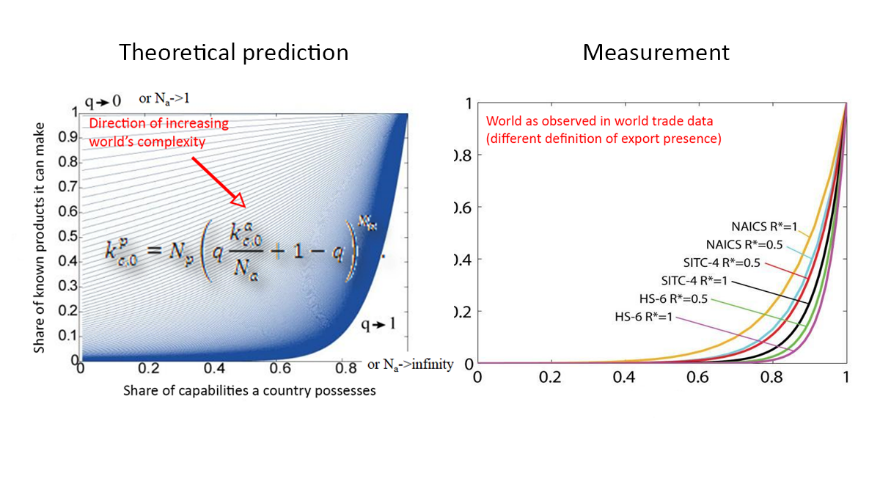
Taking the model to #cities: @GomezLievano, Patterson-Lomba, and @ricardo_hausman ask: Why do larger cities exhibit higher wages and more innovation, but also more rare diseases and crimes? Because these all are socially complex phenomena. nature.com/articles/s4156… (7/22)
The Atlas: @ricardo_hausman, @cesifoti, @seba_bustos, @mikk_c, Alex Simoes & Muhammed Yildirim’s guide to the world of economic complexity through trade data: explanations of core concepts, empirical tests and country-specific visualizations. growthlab.cid.harvard.edu/files/growthla… (8/22)
Measuring complexity: @ulrich_schetter embeds a structure of log-supermodular productivities into a multi-product Eaton-Kortum model to show that under these conditions the #EconomicComplexityIndex really does measure complexity @PennyMealy, @t8el growthlab.cid.harvard.edu/publications/s… (9/22) 
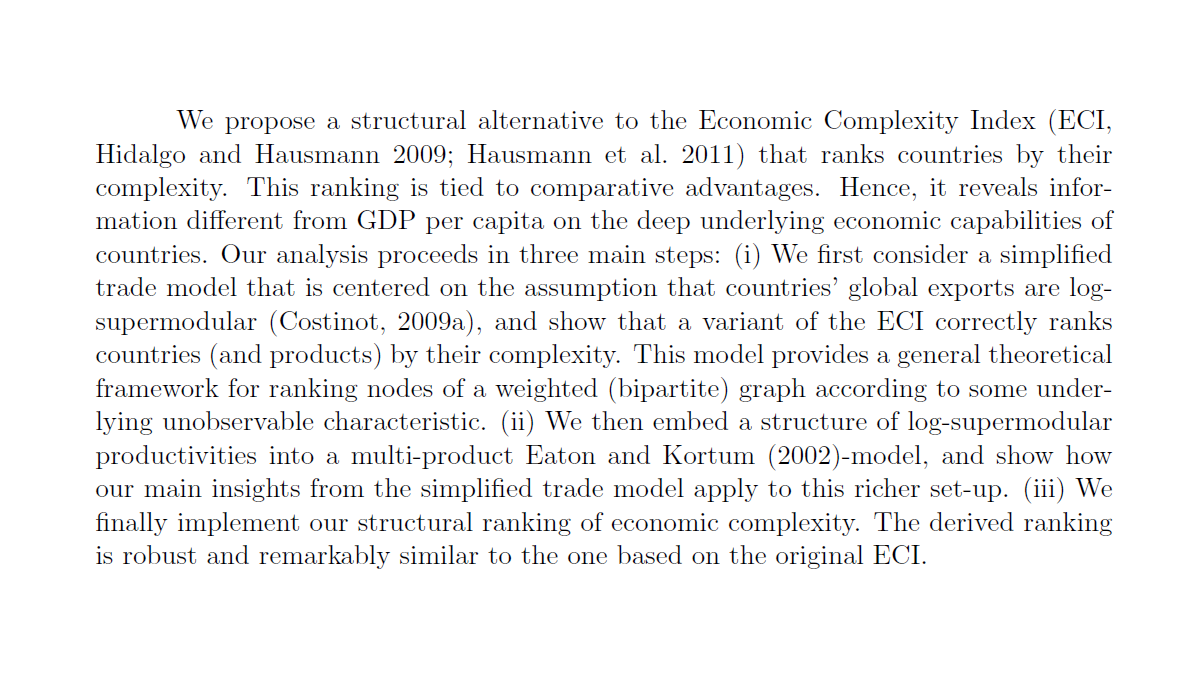
The Product Space revisited: @ricardo_hausman, Dan Stock & Muhammed Yildirim construct a Ricardian model to explain why growth of #exports in countries (or of industries in cities) can be predicted from product and country spaces. hks.harvard.edu/publications/i… (10/22) 
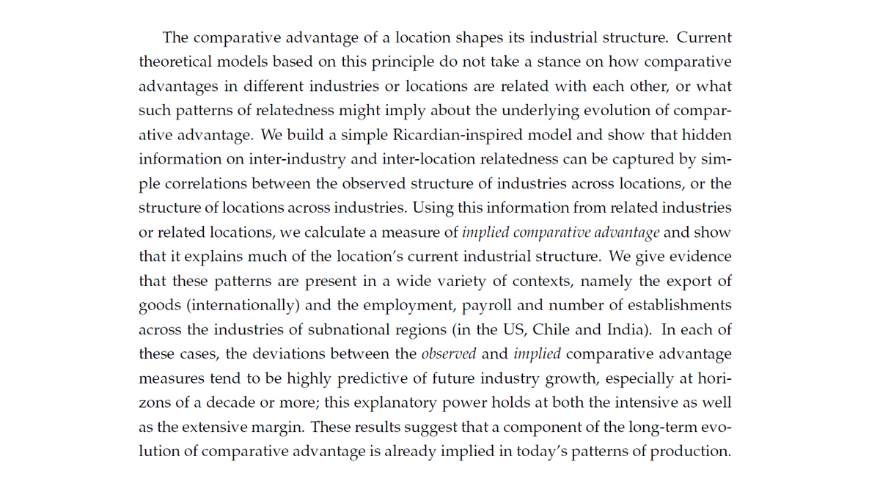
.@NeaveOClery, @dario_diodato & @FrankNeffke dissect the industry space: Why do industries collocate? It depends: services to share workers, manufacturing to be close to their value chain. But over time, sharing workers increasingly dominates. sciencedirect.com/science/articl… (11/22) 
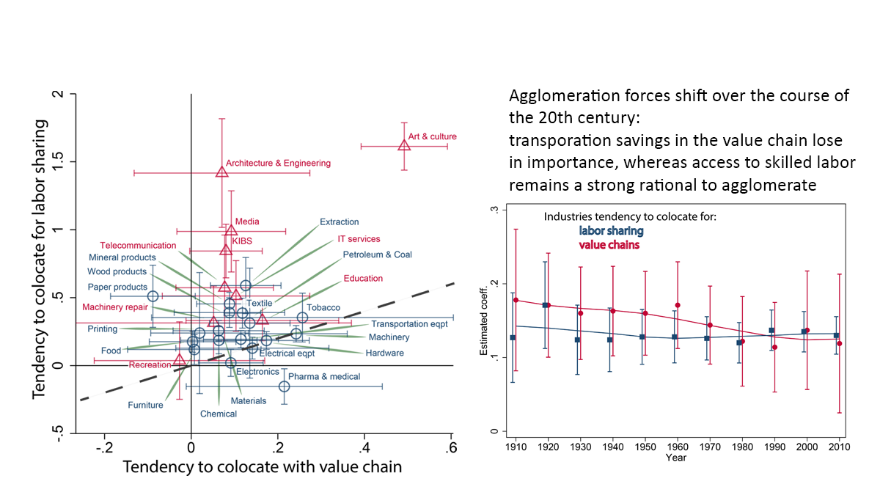
Firms diversify into industries for which their workers have the right skills. @FrankNeffke & M. Henning show that skill-relatedness inferred from large-scale data on job switches predicts firm diversification 60x better than value chain linkages. onlinelibrary.wiley.com/doi/abs/10.100… (12/22) 
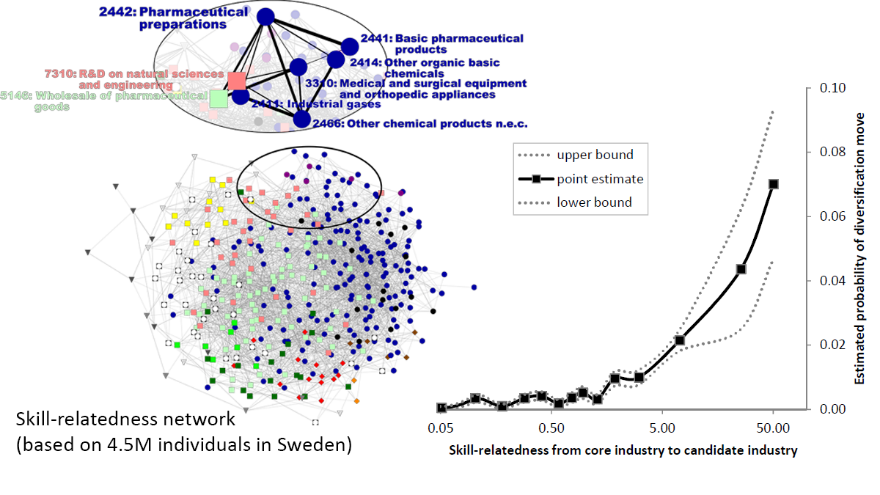
Capabilities of machines: @LjubicaNed & @Glenda_Quintini estimate the risk of automation for 32 countries, representing close to 600M jobs. It is the jobs of the young, not the old that are more at risk of automation. oecd-ilibrary.org/content/paper/… (13/22) 

Diffusing #Knowhow through return #migration. @ricardo_hausman & @LjubicaNed show that the massive return of relatively low-skill, yet experienced Albanians from Greece in the financial crisis didn't lead to unemp, but to new jobs & wage increases. sciencedirect.com/science/articl… (14/22)
How do regions make long developmental jumps? @FrankNeffke, Matté Hartog, @rboschma & Martin Henning show that the most transformative #diversification is due to firms and, to a lesser extent, entrepreneurs bringing new industries from elsewhere. doi.org/10.1080/001300… (15/22) 
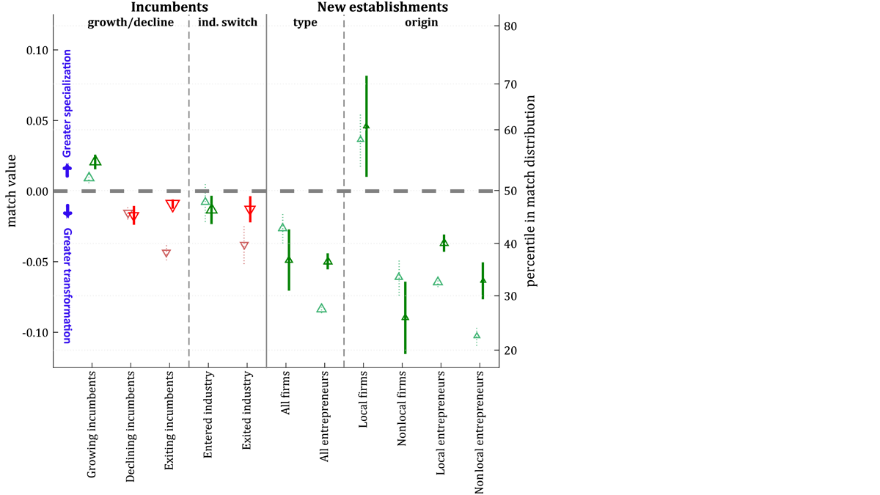
How did former East Germany reindustrialize? Using social security data, @ricardo_hausman & @FrankNeffke show that the pioneer firms in the east that brought in new mfg inds relied heavily on mobility from the west to access experienced workers. sciencedirect.com/science/articl… (16/22) 
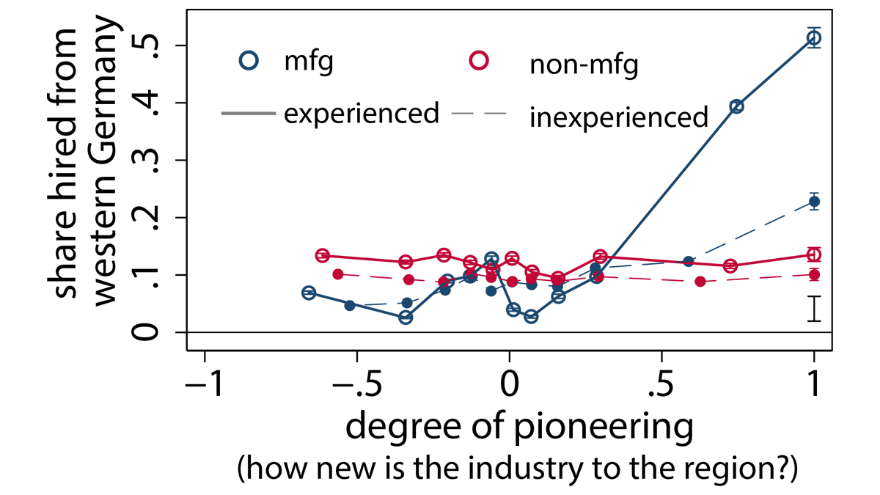
Learn from your neighbors. @dany_bahar,@cesifoti & @ricardo_hausman: countries diversify their exports by moving into products already exported by their neighbors. Also introduces the country space: a network linking countries with similar exports. sciencedirect.com/science/articl… (17/22) 
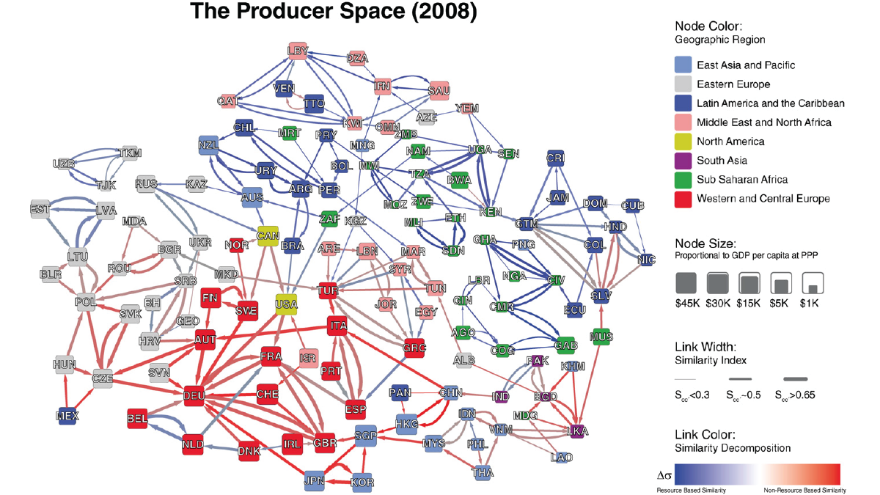
However, learning doesn't require permanent proximity. @mikk_c @FrankNeffke @ricardo_hausman show how transient proximity diffuses knowledge through business travel, helping countries diversify into the industries of their visitors’ home countries. nature.com/articles/s4156… (18/22)
Coordinating knowhow. If global knowledge keeps growing, we need to divide it across ever more people. The result is growing interdependence: the value of your skills comes to depend on how well your coworkers’ skills complement yours. @FrankNeffke advances.sciencemag.org/content/5/12/e… (19/22)
State capabilities. Steve Kosack, @mikk_c, Evann Smith, @kimay, @barabasi & @ricardo_hausman reconstruct the online digital footprint of US state governments & show that it mostly reflects not ideology or location but a state’s economic structure. pnas.org/content/115/46… (20/22) 
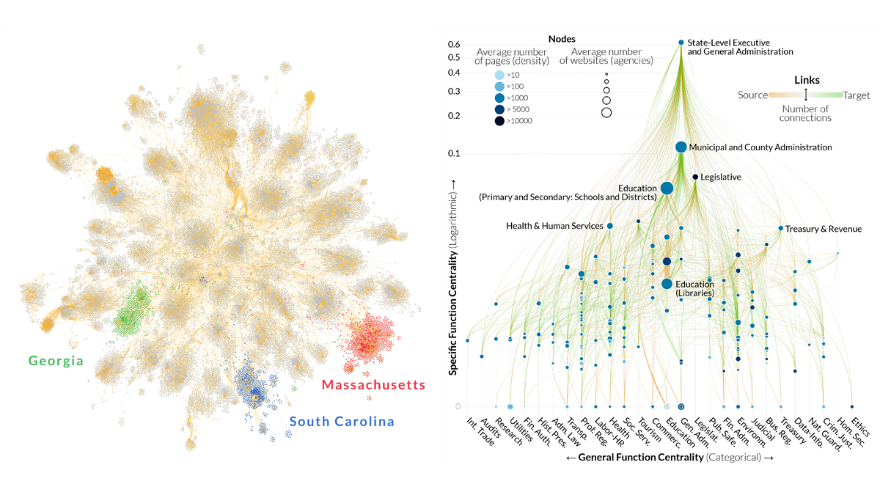
Fighting #COVID19 involves horrible trade-offs. @ricardo_hausman & @ulrich_schetter show why they are particularly excruciating in countries without unlimited access to foreign credit and why there is a dire need of massive financial support. dash.harvard.edu/handle/1/37366… (21/22) 

You'll find all of our publications in the Growth Lab's repository growthlab.cid.harvard.edu/publications Our research agenda keeps deepening & expanding: deeper theoretical foundations, diffusion, adoption, innovation, changing tasks and occupations, localization and more. Stay tuned!! (22/22)
• • •
Missing some Tweet in this thread? You can try to
force a refresh


